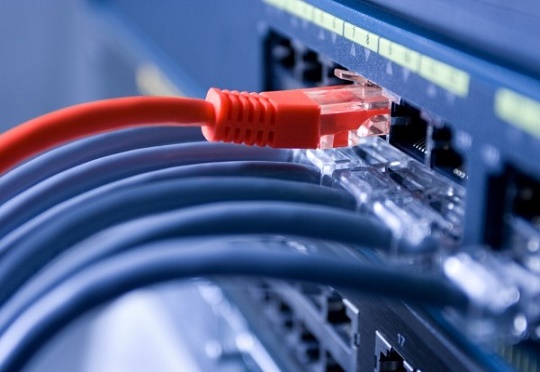There is still huge telecommunications and ICT infrastructure gap across the country despite budgetary allocations annually by the Federal Government on capital projects in the sector, and this is hampering the country’s economy in many ways.
Nigeria’s infrastructure deficit amounts to 30% of its gross domestic product (GDP), falling short of the international benchmark of 70% set by the World Bank, a report by the International Trade Office of the US Department of Commerce observed.
With Nigeria’s population growing at a rate of over 2.5% per year and an expected population of 400 million people by 2050, the US agency worries that the current infrastructure in the country is likely to be overwhelmed. The World Bank has projected that Nigeria will need to invest $3 trillion to reduce its infrastructure deficit.
The 2019 Global Competitive Index Report ranked Nigeria 130th out of 141 economies surveyed for quality infrastructure facilities. With a score of 48.33 out of 100 total points, the country still has over 50% infrastructure deficit.
ASUU to FG: Students need grants, not loans
ICPC Tracks FG’s N8bn Projects In Ekiti
Also, Nigeria was ranked 24th out of 54 African countries in the Africa Infrastructure Development Index (AIDI), 2020. With a total score of 23.26, Nigeria lags behind Egypt at 2nd place with 88.3 points, and Libya at 3rd with 82.9 points.
IT experts said provision of telecom infrastructures not only aid economic activities but also stabilise the economy.
However, inadequate ICT infrastructure has been identified as one of the factors militating against sustainable economic growth in Nigeria.
Despite the government’s various efforts to bridge ICT infrastructure gaps, including huge budgetary allocations, the gap is still wide.
The 2020 ICT Index to measure the availability of quality ICT infrastructure saw Nigeria perform low with 17.8 points out of 100.
Overall, the report said the fundamentals of any national economy are its stock of infrastructure.
This is why the Association of Telecommunications Companies of Nigeria has said infrastructural deficit in the sector is hampering the creation of digital jobs, noting that those deficits, if unresolved will not allow success in the application layers where most digital jobs reside.
While listing the challenges facing the industry, the association stated that there was a need to develop, secure and enable further expansion of communication infrastructure in the country.
It said with a solid infrastructure base, innovative digital services, which can take advantage of the growing digital economy, the telecom sector can be further developed and expanded to all areas of the country, especially the unserved and underserved areas.
The President of the association, Tony Emoekpere, said, “There is a great need to develop, secure and enable further expansion of communication infrastructure in the country. With a solid infrastructure base, innovative digital services, which can take advantage of the growing digital economy can be further developed and expanded to all areas of the country, especially the unserved and underserved areas.”
Construction of fiber optic cables across Nigeria will cost $2bn – Minister
Meanwhile, the Minister of Communications, Innovation, and Digital Economy, Bosun Tijani, said the construction of fiber optic cables across Nigeria will cost $2 billion
Tijani made this revelation in an interview on Channels Television’s Politics Today recently.
He said, “I understand, as a minister, that if we prioritize fiber optic cables in this country, the quality of service, whether it’s through your normal mobile telephony or the internet service you use at home, is going to go off the roof, and that’s the commitment I’m also making.
“In the next four years, we are going to do everything to increase the kilometers of fiber optic cables in Nigeria. We are about 35,000 kilometers away, and we need to go to 95,000 kilometers, almost half way there.
“It’s going to cost roughly $1.5 to $2 billion dollars to wire the whole of Nigeria to reach that 95, 000km.
“We hope we can accelerate in the next 6 to 12 months, secure that funding that private companies can tap into—it’s not government money—and hopefully work with serious companies that can lay fiber over the next two to three years.
“We’re hoping that before the first four years of this administration, a significant portion of that 95,000 kilometers will be covered,” he said.
Group urges FG to increase funding of ICT infrastructure
Directors of ICT in all tertiary institutions across the country have urged the Federal Government to increase the funding of ICT infrastructure in the country.
They made the appeal during he inauguration of their new committee members in Abuja, recently.
“We urge the federal government to increase funding of ICT infrastructure across the country. We need more ICT infrastructure, software solutions and capacity development in Tertiary Institutions”, the directors under the auspices of Committee of Directors of Information and Communications Technology in Nigerian Tertiary Institutions (COMDICT-NTI) said.
The COMDICT-NTI chairman inauguration committee, Malam Mohammed Bashir Sani said the primary objective of the group of technology leaders resident within the Nigerian tertiary Education Institution space, is to advise government regulators, industry partners, public and private funding bodies and other stakeholders about the collaboration and intervention opportunities on ICT infrastructure in the country.
But speaking after the inauguration, Chairman, ComDICT-NTI, Daniel Inusa Yakmut the common denominator in their association is the management and provision of ICT infrastructure and services in tertiary institutions.
“We have common needs and challenges. Therefore, the formation of a unified association is beneficial and important for us, it provides us with a common front to confront our challenges and proffer solutions in entrenching the adoption and use of ICT in our tertiary institutions”, Yakmut said.
Hr said the impact that ICT has had on education in recent years has been tremendous.
He said: “From CBT, e-learning to virtual classrooms and meetings, ICT has transformed the way we do research, acquire knowledge and exchange ideas.”
Therefore, ComDICT-NTI has been formed with the main objective to promote and advance the use of technology in tertiary institutions, he added.

 Join Daily Trust WhatsApp Community For Quick Access To News and Happenings Around You.
Join Daily Trust WhatsApp Community For Quick Access To News and Happenings Around You.


